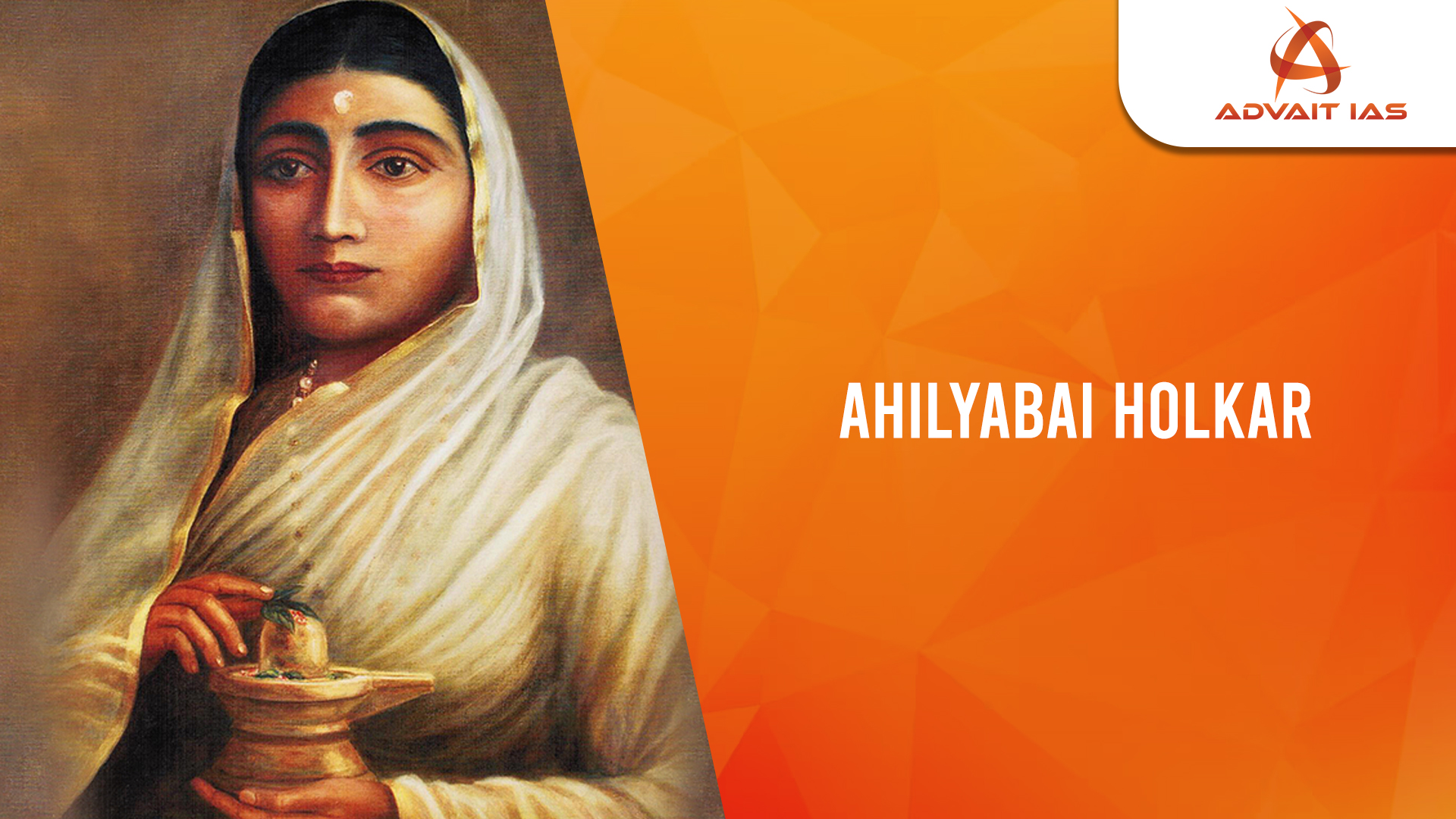On 31st May 2025, the Maharashtra Cabinet held its first-ever meeting outside Mumbai, at Chondi (Ahmednagar district).
- The occasion marked the 300th birth anniversary of Ahilyabai Holkar, honoring her administrative, social, and cultural legacy.
Birth and Early Background
- Born: 31st May 1725, Chondi village, Ahmednagar, Maharashtra.
- Family: Daughter of Mankoji Rao Shinde, a village patil (headman).
- Belonged to a modest Maratha family, reflecting her humble beginnings.
- Married in 1733 to Khanderao Holkar, son of Malhar Rao Holkar, the founder of the Holkar dynasty of Malwa.
- Widowed in 1745 after Khanderao’s death during the siege of Kumher Fort.
- Mentor: Malhar Rao Holkar trained her in administration and warfare, preventing her from committing sati.
Rise to Power
- Took over Malwa’s reins after:
- Death of Malhar Rao Holkar (1766).
- Death of her son Male Rao Holkar (1767).
- Became ruler of Indore (1767), ruling with justice, austerity, and public welfare.
- Shifted the Holkar capital to Maheshwar (Madhya Pradesh).
- Appointed Tukoji Rao Holkar as the commander of her army.
Religious & Cultural Contributions
- Reconstructed prominent Hindu temples:
- Somnath, Kashi Vishwanath, Gaya, Trimbakeshwar, and Rameswaram.
- Restored Jyotirlingas and facilitated pilgrimage infrastructure.
- Patronized art, literature, and religious scholarship:
- Supported poet-saints like Khushali Ram, Moropant, and Shahir Anantaphandi.
Social Reform and Welfare
- Championed women’s education, widow remarriage, and social upliftment.
- Opposed sati, child marriage, and untouchability.
- Promoted inclusive development by supporting:
- Bhil and Gond tribal communities.
- Lower castes and rural artisans.
Economic Initiatives
- Developed Maheshwar and Indore as trade and cultural centers.
- Boosted weaving and textile industries — especially Maheshwari sarees.
- These sarees are now protected with a Geographical Indication (GI) tag.
Legacy and Recognition
- Known as one of India’s finest rulers, blending Dharma (righteousness) with governance.
- Revered for her just and benevolent rule — often compared with legendary rulers like Ashoka and Akbar.
- Commemorated in folk songs, ballads, temples, and museums across India.
- The Government of India issued postage stamps in her honor and included her in school curricula.
Ahilyabai Holkar remains a timeless symbol of ethical leadership, social reform, and cultural renaissance. The Maharashtra government’s tribute through the Cabinet meeting in Chondi reflects growing efforts to recognize and revive the legacies of iconic female rulers in Indian history.






